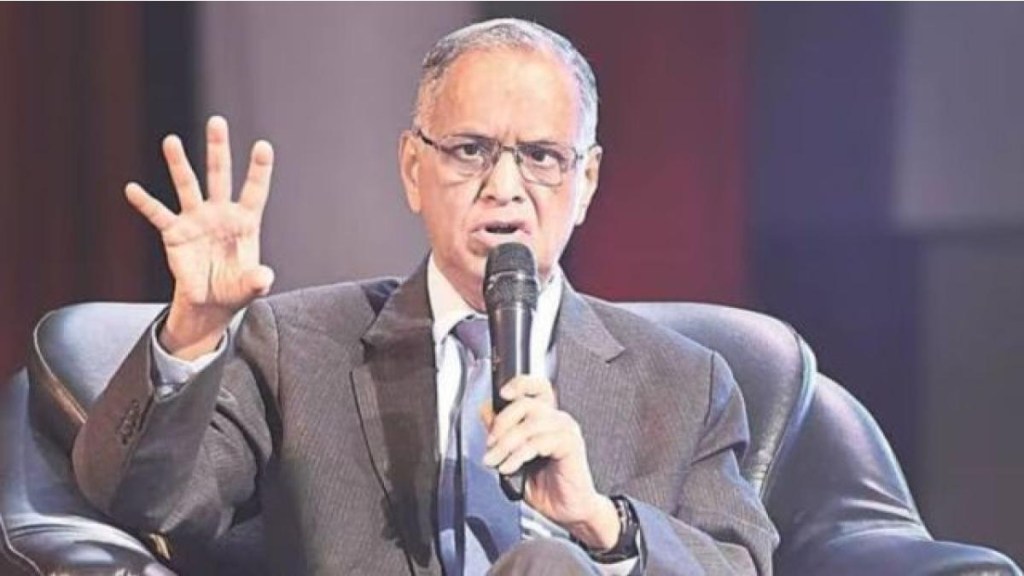Infosys founder NR Narayana Murthy, who earlier faced flak for his comments on a 70-hour work week, has now emphasised the need for businesses and entrepreneurs to embrace “compassionate capitalism” by treating employees as humans and ensuring dignity and respect in the corporate environment.
Murthy’s latest comments come months after he had pressed hard on a 70-hour work week, following which Infosys founder had to battle brutal social media backlash.
Speaking at TiE Con Mumbai 2025, Murthy highlighted the importance of praising employees publicly and providing constructive criticism privately. He also advocated for a fair distribution of corporate profits among all employees, underscoring the necessity of reducing the pay gap between the highest and lowest earners within organisations.
“To praise people in public and criticise in private, and to the extent possible, to share the fruit of the corporation in a fair manner amongst all employees of the company,” said the Infosys founder. .
Compassionate Capitalism
Murthy asserted that India’s future development and poverty alleviation hinge on businesses adopting compassionate capitalism. He explained that capitalism is about creating opportunities for innovation, wealth generation, job creation, and contributing to national development through taxes. According to Murthy, embracing this ideology with empathy can enable the country to move beyond its traditional socialist mindset, fostering a thriving and inclusive economy.
“Capitalism is all about providing opportunity for people to come out with new ideas to create wealth for themselves and their investors; to create jobs for people and thereby reduce poverty; and to contribute to taxes in the country so that a lot of public good work can take place,” Murthy explained.
Walk the talk
He further asserted that, faced with financial losses, he organised training programs on IBM AS400 computers at Infosys campuses. These programs were open to competitors, allowing their best engineers to enhance their skills. The proceeds from these sessions were contributed to Nasscom to help cover its losses.
Harish Mehta, former TiE Mumbai founding president, shared this anecdote to highlight Murthy’s dedication to the greater good of the industry. Murthy prioritised the survival and growth of Nasscom, understanding that fostering collaboration, even with competitors, was essential for the industry’s future.
Murthy emphasised that entrepreneurs must act as evangelists for ethical capitalism. He urged business leaders to “walk the talk” and demonstrate through actions that capitalism, when practised compassionately, can be a force for good. This approach, he argued, would help shift perceptions in a society historically inclined towards socialism, encouraging a broader acceptance of entrepreneurship and its benefits.

